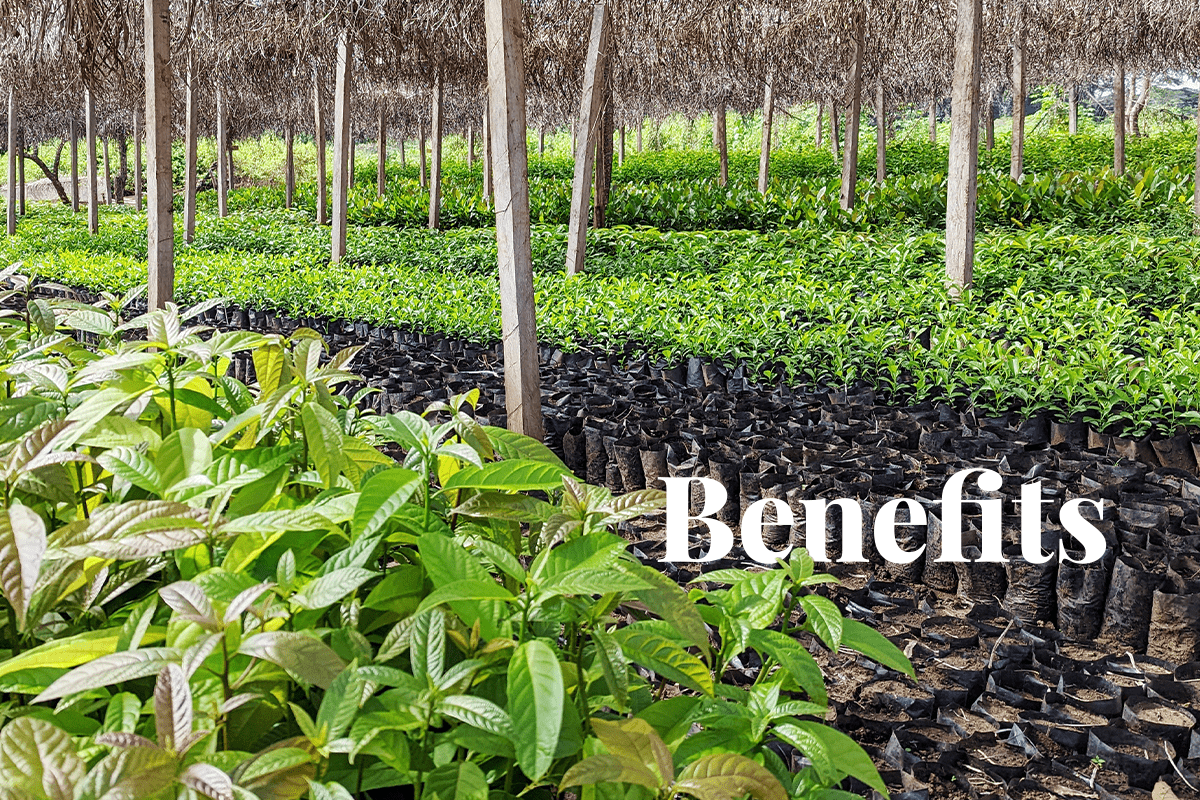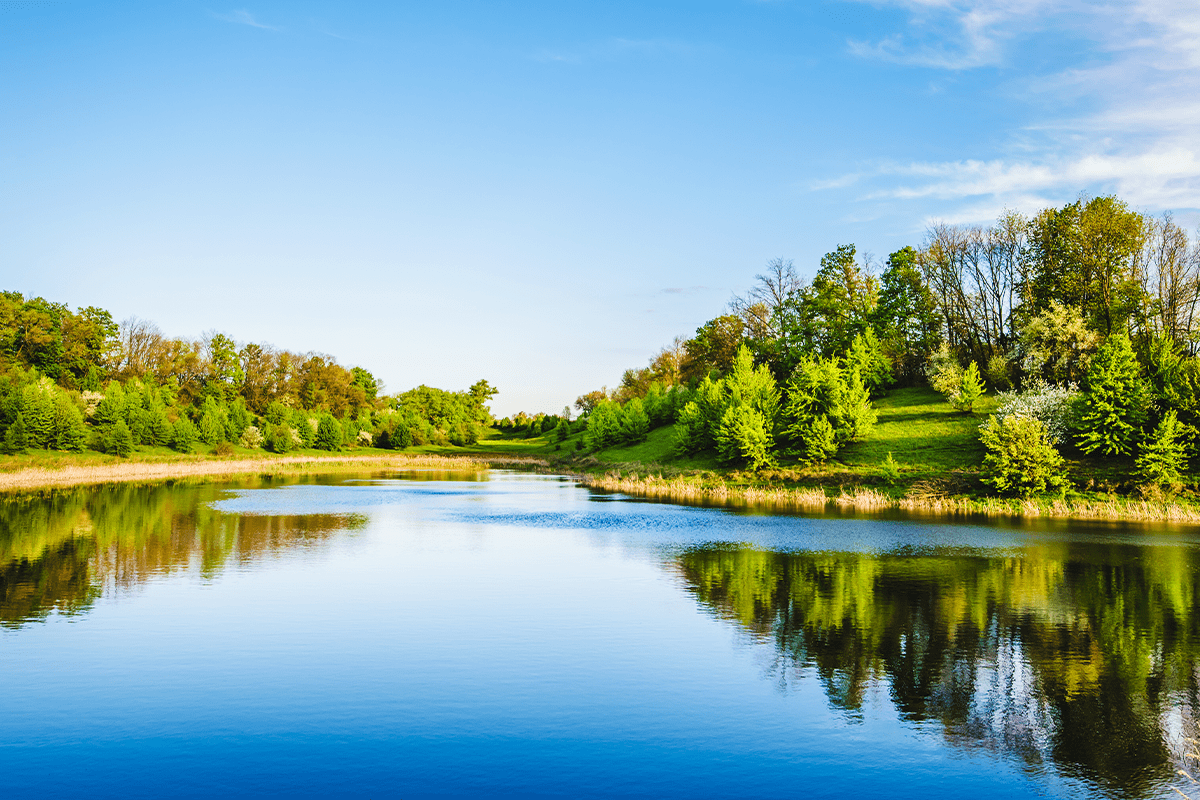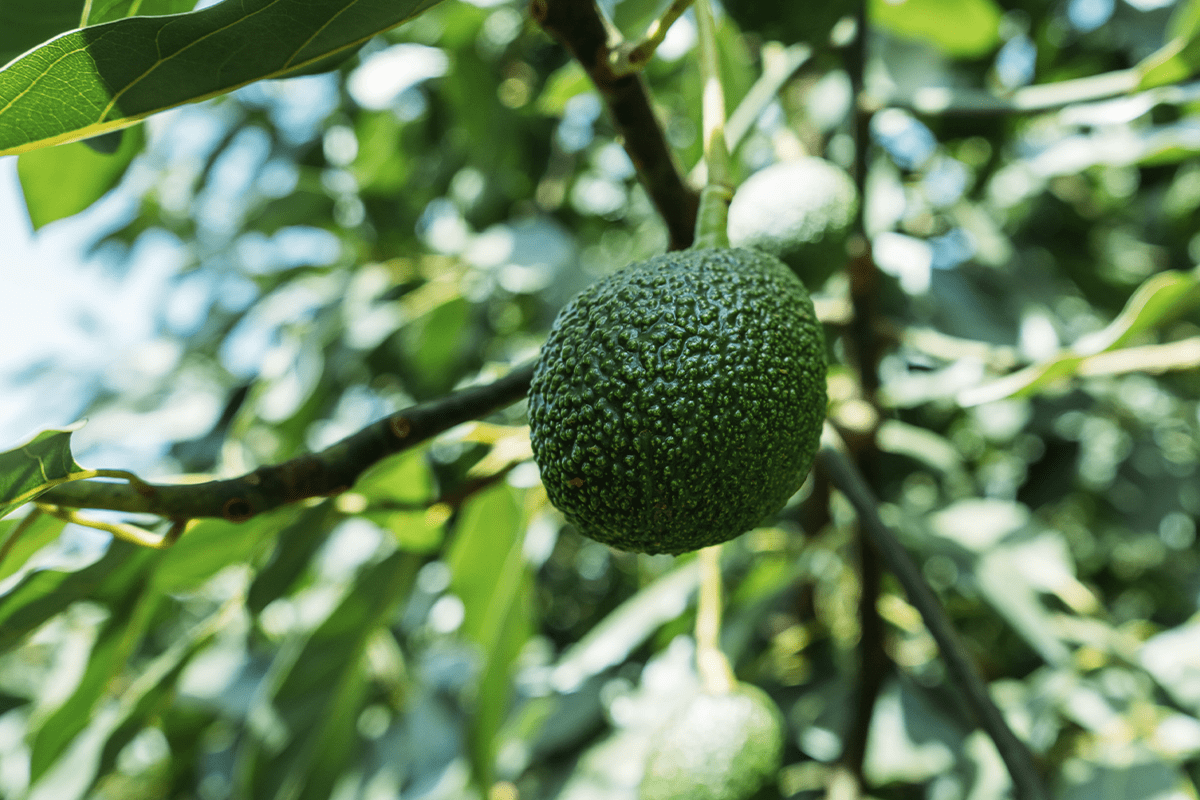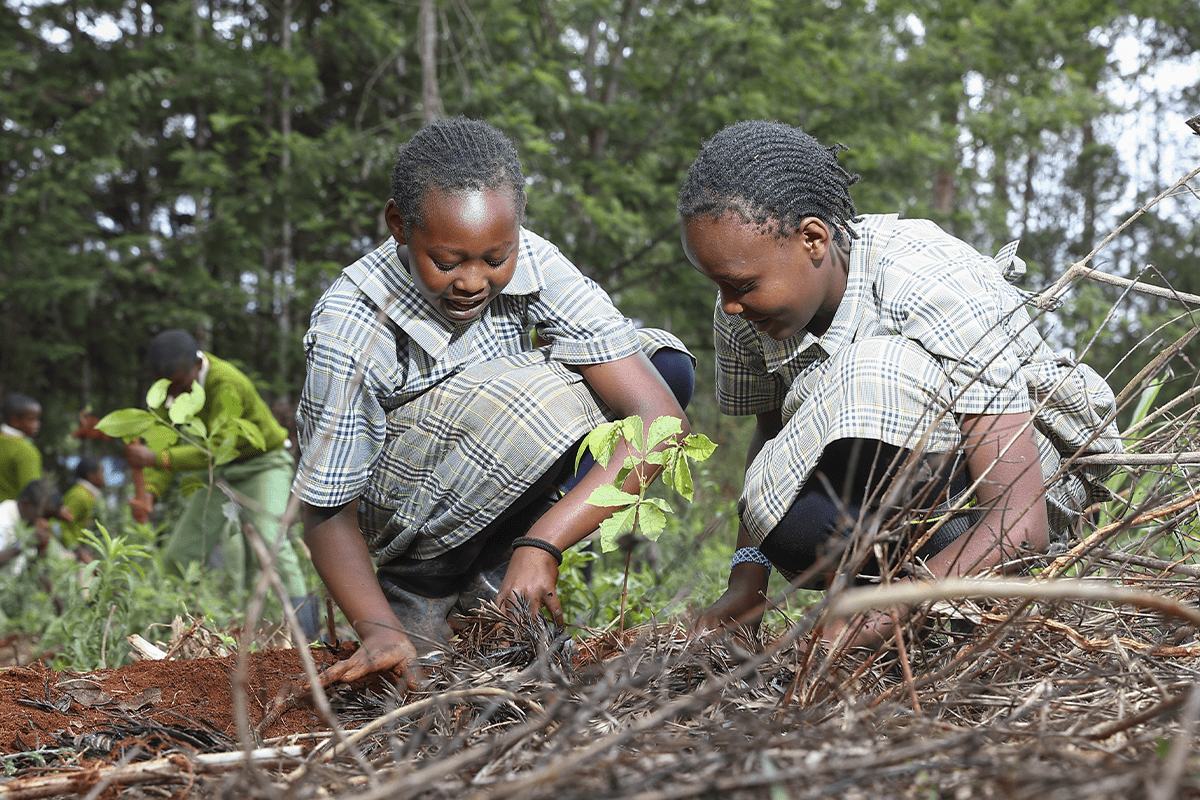In a world grappling with environmental challenges, reforestation stands out as a powerful solution that offers numerous benefits. By planting trees in areas that have been deforested or devoid of forests, we can unlock a range of positive effects. From combating climate change to fostering biodiversity, reforestation holds the key to a healthier planet and thriving communities. In this blog, we will explore 10 amazing benefits of planting trees and delve into the importance of reforestation efforts. Let's dive in!
 Tree nursery - Sawa Afforestation Project, Cameroon, DGB.
Tree nursery - Sawa Afforestation Project, Cameroon, DGB.
1. Carbon sequestration
Climate change is one of the most pressing global issues, and reforestation plays a crucial role in mitigating it. Trees are champions in absorbing carbon dioxide (CO2) from the atmosphere through the process of photosynthesis—that’s why forests are called carbon sinks. By planting trees and restoring forests, we can effectively sequester carbon, reducing greenhouse gas emissions. As trees mature, they continue to store carbon, making reforestation an impactful strategy in combating climate impacts.
Read more: Carbon farming: How is it good for the environment, farmers, and biodiversity?
Trees have an incredible capacity to absorb CO2. On average, a single mature tree can absorb around 21 kilograms of carbon dioxide per year. Forest restoration projects, spanning vast areas, can collectively sequester millions of tonnes of carbon annually, contributing significantly to climate change mitigation.
Benefit the environment: Plant trees now with DGB
2. Biodiversity conservation
Biodiversity is vital for all life on Earth, and forests are vibrant ecosystems that support a wide array of plant and animal species. Humans use at least 40,000 different species of plants and animals daily for food, shelter, clothing, and medicinal needs. Reforestation plays a pivotal role in preserving and restoring biodiversity. By planting a diverse range of tree species, we create habitats for various plants, insects, birds, and mammals, fostering a balanced and resilient ecosystem. Researchers have discovered that up to 2.3 million living species can depend on a single tree!
 Eurasian hoopoe in a nest inside a tree feeding young chick.
Eurasian hoopoe in a nest inside a tree feeding young chick.
Reforested areas become havens for endangered species and contribute to the conservation of biodiversity hotspots. The restoration of natural habitats enables wildlife populations to recover and thrive. The interdependence of different species within the ecosystem ensures the long-term survival of diverse flora and fauna.
Read more: From the brink of extinction: 4 endangered species that made a comeback
 Koala sleeping on eucalyptus tree, Australia.
Koala sleeping on eucalyptus tree, Australia.
3. Soil protection and restoration
Healthy soil is the foundation for sustainable agriculture and thriving ecosystems. Reforestation helps protect and restore soil health by preventing erosion and improving its structure. The extensive root systems of trees bind the soil, reducing the risk of landslides and soil degradation.
Read more: Soil health: Why it is crucial for food production and how we can protect it
As trees shed leaves and organic matter, they enrich the soil with nutrients, promoting fertility and supporting plant growth. Moreover, tree canopies shield the ground from heavy rainfall and harsh weather.
4. Water quality enhancement
Forests act as natural filters, purifying water as it passes through the ecosystem. By planting trees along waterways and reforesting watersheds, we can enhance water quality significantly. Trees trap sediments, excess nutrients, and pollutants, preventing them from reaching rivers, lakes, and groundwater sources.
Read more: Water conservation: protecting nature's liquid gold
By reducing the amount of pollutants entering water bodies, reforestation projects improve aquatic habitats and protect the biodiversity within them. Clean water is not only essential for the survival of aquatic life but also crucial for human consumption and for supporting various economic activities.
 A lake near a forest during summertime.
A lake near a forest during summertime.
5. Water cycle regulation
Reforestation has a profound impact on the water cycle, playing a vital role in regulating water flow. Forests intercept rainfall, reducing the intensity of surface runoff and preventing flooding. The canopies of trees slow down the fall of raindrops, allowing the water to permeate the ground gradually.
Read more: Trees are nature's water managers: the importance of trees in water conservation
Approximately 75% of the world’s accessible freshwater for agricultural, domestic, industrial, and environmental use comes from forest ecosystems, with 85% of the world's cities relying on forests for their water supply. Forests are therefore integral to our water security. By planting trees strategically, we can promote groundwater recharge, replenish underground aquifers and ensure a steady water supply during dry periods. Reforestation helps maintain balanced water systems, minimising the risk of droughts and water scarcity.
 Oak tree leaves with a raindrops.
Oak tree leaves with a raindrops.
6. Climate regulation
Forests have a remarkable ability to regulate local and regional climates. The shade provided by tree canopies helps reduce temperatures, creating a cooling effect in urban areas. Through evapotranspiration, trees release water vapour into the air, further cooling the surrounding environment.
Reforested areas act as natural air conditioners, mitigating the urban heat island effect, which is a phenomenon where urban areas experience higher temperatures than surrounding rural areas. Trees can reduce heat-related stress and premature deaths during high temperatures and heat waves. The World Health Organisation recorded that from 1998 to 2017, more than 166,000 people died due to heatwaves, with this risk increasing due to climate change. By planting trees strategically in urban settings, we can create microclimates that provide respite from the heat and improve overall climate resilience.
7. Air quality improvement
In an era of increasing air pollution, trees emerge as nature's air purifiers. They absorb harmful pollutants such as nitrogen dioxide, sulphur dioxide, ozone, and particulate matter, thereby improving air quality. Through photosynthesis, trees also release oxygen, which is vital for our wellbeing.
Read more: Breathe easy: How trees are nature's air-cleaning machines
Reforestation efforts have the potential to combat respiratory health problems, such as asthma and other respiratory illnesses. According to the World Health Organisation, nine out of ten people worldwide breathe polluted air. This produces millions of preventable illnesses and deaths. By increasing tree cover in urban areas and near industrial zones, we can create cleaner and healthier environments for communities.
 A man running in a park.
A man running in a park.
8. Disaster risk reduction
Natural disasters, such as landslides, mudslides, and flooding, pose significant risks to communities. Reforestation plays a crucial role in reducing these risks. By planting trees on slopes and in vulnerable areas, forests stabilise the soil, preventing erosion and reducing the likelihood of landslides and mudslides.
Additionally, trees act as natural barriers, absorbing excess rainwater and mitigating the impact of floods. The root systems of trees help bind the soil together, creating a strong defence against soil erosion during heavy rainfall events. Reforestation projects enhance the resilience of communities in the face of natural disasters.
9. Economic benefits
Reforestation projects offer economic benefits that extend beyond environmental gains. Sustainable timber harvesting, non-timber forest products, and eco-tourism generate income and employment opportunities. Timber from responsibly managed forests can be used in construction, furniture production, and various industries.
 Avocado tree in Kenya.
Avocado tree in Kenya.
Furthermore, forests provide a range of ecosystem services and non-timber forest products, such as fruits, nuts, medicinal plants, and fibres, which can be harvested sustainably and sold for income generation. Ecotourism initiatives centred around reforested areas attract visitors, create local jobs, and stimulate local economies.
Read more: 10 Vital ecosystem services: sustaining life on Earth
10. Social and cultural benefits
Forests hold immense cultural and social significance. They provide spaces for recreation, education, and research. Reforestation efforts allow communities to reconnect with their natural heritage and foster a sense of pride in their surroundings. By involving local communities in tree planting activities, we can strengthen bonds, promote environmental stewardship, and build a sustainable future together.
 Two pupils planting a seedling, school in Kenya, Kutus area - Hongera Reforestation Project, Kenya, DGB.
Two pupils planting a seedling, school in Kenya, Kutus area - Hongera Reforestation Project, Kenya, DGB.
Forests offer recreational spaces for hiking, camping, and nature exploration, promoting physical and mental wellbeing. They also provide educational opportunities for schools and research institutions to study ecosystems, biodiversity, and the impacts of climate change. Reforestation initiatives empower communities to take an active role in environmental conservation and develop a sense of ownership over their natural surroundings.
Read more: What makes DGB’s reforestation projects unique?
DGB Group's dedication to reforestation
Reforestation stands as a remarkable solution to multiple environmental challenges. As we witness the impact of deforestation on the environment, it becomes imperative to prioritise reforestation efforts. DGB Group is dedicated to reforestation initiatives, and through our projects, we are actively combatting deforestation and its impact. Even so, we must collectively take action right at the root causes of deforestation to combat this widespread phenomenon.
By understanding the 10 amazing benefits of planting trees, we can collectively work towards a greener and healthier planet. Let us join hands in supporting reforestation efforts, planting trees wherever possible, and fostering a sustainable future for generations to come. Together, we can make a lasting impact and ensure a thriving planet for all.












